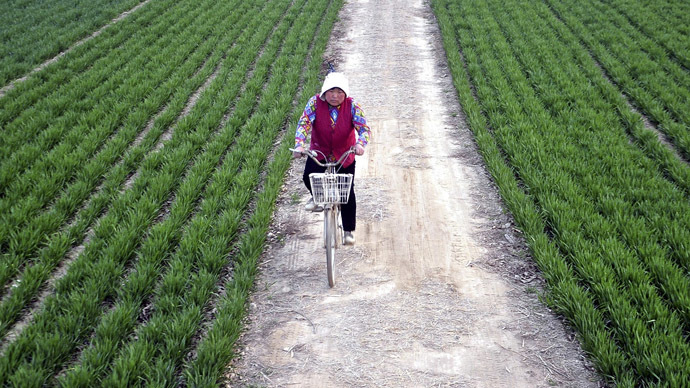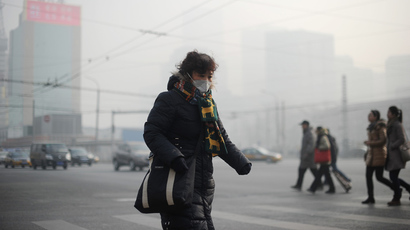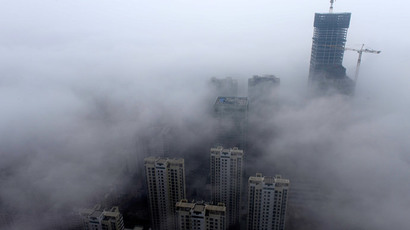Nearly 20 percent of Chinese farmland contaminated

A new official report has confirmed that one fifth of Chinese farmland is polluted. It cites the main causes as industry and agriculture. The report was originally a state secret and names heavy metals such as arsenic and cadmium as main pollutants.
The report on the website of the Ministry of Environmental Protection confirms the extent of soil pollution in China as a result of the country’s dramatic industrialization, overuse of farm chemicals and minimal environmental protection.
The survey describes deserted industrial and mining land as the most polluted and the quality of farmland it says is worrying, while overall situation it says is “not optimistic.”
Started in 2005 and finished in December 2013, the study covered about 630 square kilometers of land and took around 100,000 samples across China.
70 percent of the samples were “lightly polluted” with pollution levels at twice the national standard and 7 percent were “heavily polluted” with levels more than five times the national standard.
Most of the land surveyed is on the east coast of China, which is the most industrial part of the country. Although the report found that the southwest of the country was particularly badly hit by heavy metal pollution.
In the case of heavy metal pollution, health risks can take decades to emerge and health officials have already admitted the existence of so-called “cancer villages,” where cancer rates are way above the national average in towns and villages next to large industrial enterprises and factories.
The study released by the Chinese government was originally labeled as a state secret, so it is unclear whether what was released comprises all the information and data that was collected.
Dong Zhengwei, a Beijing based lawyer, who requested the findings of the study was initially refused and told that the ministry could only release a few details.
Chex Xiwen, the deputy director of China’s top agricultural authority, admitted in January that millions of hectares of farmland may have to be withdrawn from use because of pollution by heavy metals, particularly cadmium, nickel and arsenic, the Guardian reported.
Last December the vice minister of land and resources estimated that 3.3 million hectares of land, mostly in grain producing regions, is polluted.
Public anger at the staggering extent of the problem has played a large part in pressuring the government to release data on pollution. Even some quarters of the state media are clamoring for more openness. The Communist Party run People’s Daily said “covering this up only makes people think: We’re being lied to.”
It is this pressure which forced the ministry’s hand in giving Zhengwei at least some information. Without this, “public anger would get stronger, and soil contamination would deteriorate, while news of cancer villages and poisonous rice would continue to spring up,” he told AP.
One of the major concerns for scientists and doctors is Cadmium, a carcinogenic metal that causes kidney damage, which is absorbed by rice. Last May authorities launched an investigation into rice mills in southern China after half of the rice supplies in the city of Guangzhou were found to be contaminated with cadmium.
In early 2013, the Nanfang Daily reported that tens of thousands of cadmium-tainted rice had been sold to a noodle maker, but the effects of eating toxic produce can take 10-30 years to develop as a disease.
Water and air pollution is also a serious problem in China but soil pollution has to date received a lot less attention.














